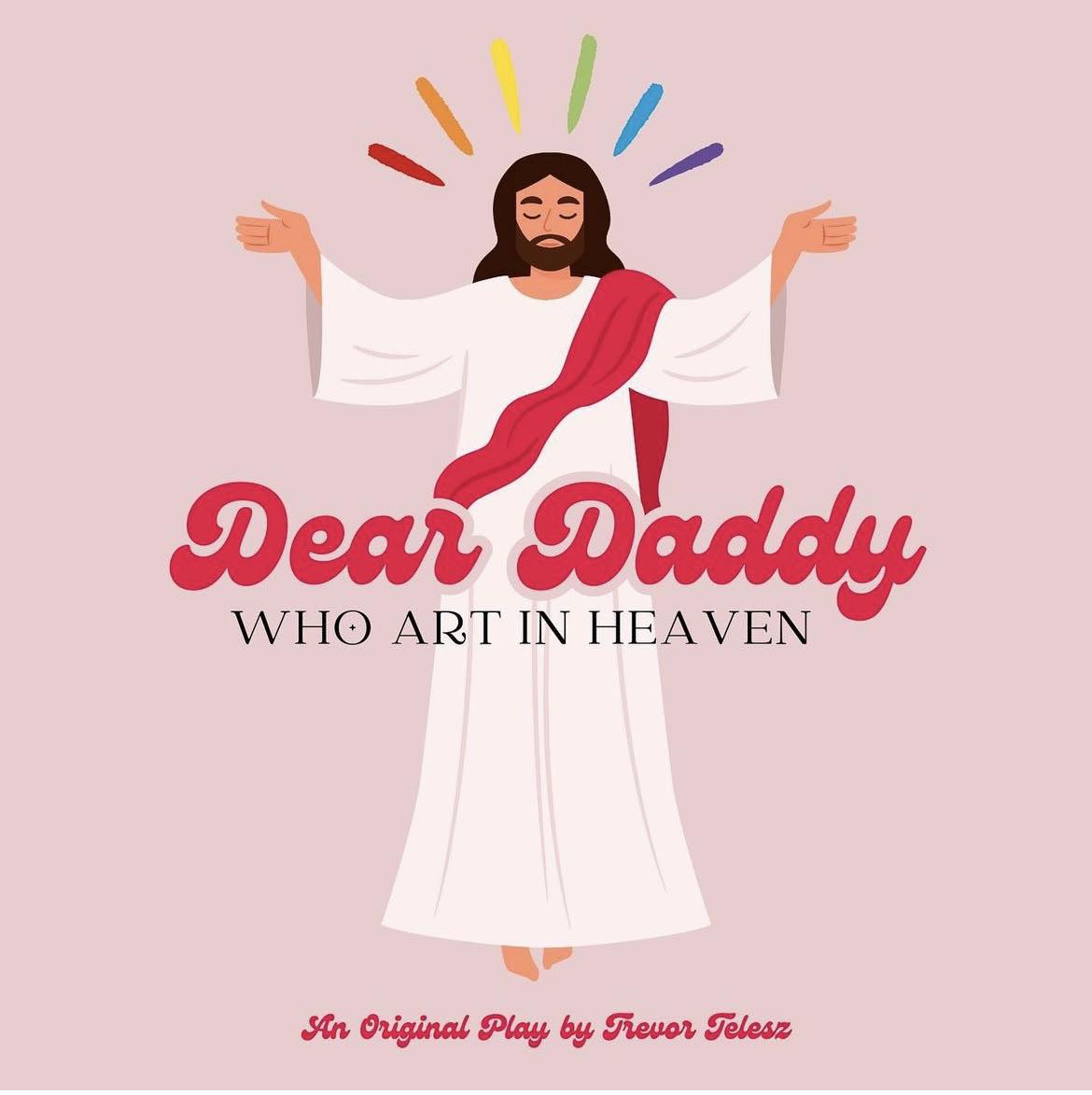From the complex relationship between religion and queer theory, “Dear Daddy, Who Art in Heaven” emerges as a refreshing and bold exploration of the intersection between faith, identity, and sexuality. Trevor Telesz’s witty writing blends humour and introspection, creating an engaging narrative that both challenges and entertains.
The play revolves around a young man grappling with the complexities of his religious upbringing and his developing awareness of his own sexuality. What sets this production apart from the multitudes of coming-of-age, coming-out and come-to-Jesus stories is Telesz’s characterisation of The Voice of God. The omnipresent voice (radio mic/ speakers) takes on a persona that is far from the solemn deity of tradition; this incarnation is ‘irreverent, crass, fruity, and a total troll’- spoken with such sensitivity, texture and timing by James Peake that to hear him, Richard Dawkins may even rethink some of his ideas about spirituality.
Through this unexpected characterization, “Dear Daddy” delves into the core tenets of fundamentalist Christian beliefs, examining them through a lens that somehow balances respect and irreverence. Telesz’s script navigates the challenging terrain of faith, shining a light on both the external pressures and the internal struggle of the protagonist with compassion and authenticity. He doesn’t shy away from addressing the clash between religious doctrines, cultural hegemony and personal identity, but does so with an undeniable charm that allows the audience to both reflect and chuckle. The moments of humour serve as both a relief and a catalyst for deeper contemplation and catharsis.
The play astutely dissects some of the challenges and stereotypes associated with the LGBTQ+ experience. While the performance seems to be somewhat autobiographical, Telesz doesn’t simply present a singular narrative, but rather layers the exploration with nuance beyond his own experience, both socially and historically. Coming from America, there’s an intersectional complexity to his understanding of faith within a Queer context that is valuable to the British conversation around Queer rights.
Director Calum Dwyer’s vision, while effective in eliciting a strong yet vulnerable performance from Telesz, seemed to lack a cohesive integration of the space and production elements. For example, the Christmas tree and baubles they used, that inherently carry symbolic weight, were introduced from the top of the play but seemed incongruous or out of the logic of the time within the play. This underdeveloped incorporation of the visual elements limited the potential for a more immersive and visually stimulating experience, leaving some aspects of the production feeling visually cluttered and lacking in thematic depth.
However, “Dear Daddy, Who Art in Heaven” is a testament to the power of theatre to provoke introspection and dialogue. It encourages its audience to reflect on the intricate, and often entirely personal, relationship between faith and self-discovery, offering a delightful and thought-provoking experience that lingers long after the end, into the bar and when one is alone in thought. While the play appears to be at a healthy development stage, after some further production support, this is bound to be a must-see for those seeking a theatrical journey that is as enlightening as it is entertaining.
For more info visit @deardaddytheplay on Instagram.


Leave a comment